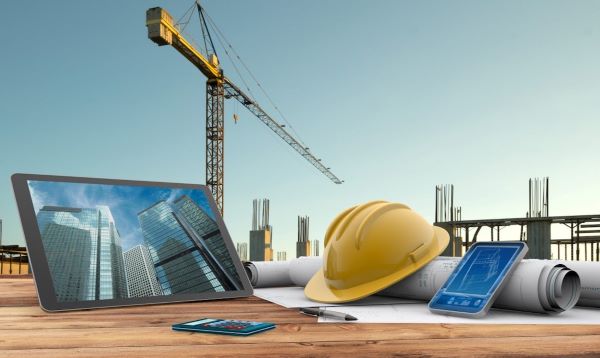What is construction work? What are the regulations on the types and grades of construction works in Vietnam? - Thuy Tien (Tien Giang, Vietnam)

What is construction work? 06 things you should know about construction work (Internet image)
1. What is construction work?
According to Clause 10, Article 3 of the Construction Law 2014 (amended 2020), construction work means a product constructed according to design, created by human labor and with building materials and equipment installed therein, and affixed to land, which possibly includes:
- Underground components;
- Surface components;
- Underwater components;
- Water surface components.
2. Types and grades of construction works in Vietnam
Types and grades of construction works according to Article 5 of the Construction Law 2014 (amended 2020), are as follows:
- Types of construction works shall be determined by structural characteristics and functions of construction works.
- Grades of construction works shall be determined for each type of construction works, including:
+ Grades of construction works serving the management of construction investment activities as prescribed by this Law shall be determined based on their sizes, importance and technical specifications, including special grade, grade I, grade II, grade III and grade IV, except for the case specified in Point b of Clause 2 of Article 5 of the Construction Law 2014 (amended 2020);
+ Grades of construction works serving the construction design are provided for in standards and technical regulations. Grades of construction works serving other management tasks shall be determined in accordance with relevant laws.
3. Archive of construction work dossiers in Vietnam
Archive of construction work dossiers according to Article 88 of the Construction Law 2014 as follows:
- Project owners shall archive completion dossiers of construction works. Contractors participating in construction activities shall archive dossiers of jobs they have performed.
- Dossiers serving the management and use of construction works shall be archived by managers or users of these works for a period at least equal to the lifetime of these works prescribed by law.
- The compilation and archive of dossiers of construction works must comply with the law on archives.
4. Relocation of construction works in Vietnam
Relocation of works according to Article 117 of the Construction Law 2014 is as follows:
- The relocation of works must comply with approved construction master plans and ensure their quality and safety, not affect adjacent works, and ensure their original architecture, for works with conservation requirements.
- Before relocating works, project owners or work owners shall apply for relocation permits.
- Contractors that conduct the relocation of works shall apply measures to ensure labor safety and safety for relocated works and adjacent works and environmental protection.
5. Dismantlement of construction works in Vietnam
According to Article 118 of the Construction Law 2014 (amended 2020), regulations on demolition of construction works are as follows:
- Construction works shall be demolished in the following cases:
+ The demolition is carried out for clearance of sites for construction of new or makeshift works;
+ Works are in danger of imminent collapse, thus affecting the community and adjacent works; works are subject to emergency demolition to promptly meet requirements of prevention, control and recovery from disaster, enemy sabotage, epidemic or other urgent duties to ensure national defense and security, and external affairs according to decisions issued by competent state agencies;
+ Works are constructed in no-construction zones prescribed in Clause 3 Article 12 of the Construction Law 2014 (amended 2020);
+ Works are constructed against construction planning or without construction permits as required, or works are constructed against the issued construction permits;
+ Works are constructed on public land, or land under lawful use rights of other organizations or individuals; or works are exempted from construction permits but constructed against the approved construction designs;
+ Detached houses are demolished for building new ones.
- The demolition of construction works must ensure safety and environmental protection and be carried out according to the following procedures:
+ Develop a demolition plan or solutions. If the work is subject to a demolition decision or coerced demolition, such demolition decision or coerced demolition decision is required when carrying out the demolition;
+ Verify and approve the demolition plan or solutions in case of demolition of the construction work significantly affecting the community safety and interests;
+ Organize the demolition of the construction work;
+ Organize supervision and acceptance test of the demolition results.
- Responsibilities of parties involved in the demolition of construction works are prescribed as follows:
+ Project owners, owners, manager or users of the works or persons that are assigned to take charge of the demolition shall organize the demolition according to the procedures set out in Clause 2 of Article 118 of the Construction Law 2014 (amended 2020);
Themselves carry out the demolition if fully meeting capacity requirements, or hire experienced and qualified consultancy organizations to develop and verify demolition plan or solutions, and carry out the demolition; take responsibility before law and pay compensation for damage caused due to their faults;
+ Contractors assigned to carry out the demolition shall work out demolition measures in conformity with the approved demolition plan or solutions;
Carry out the demolition according to the demolition measures and demolition decision or coerced demolition decision (if any); carry out control and monitoring of works; ensure safety for people, assets, demolished works and adjacent works;
Take responsibility before law and pay compensation for damage caused due to their faults;
+ Persons competent to decide the demolition of construction works shall take responsibility before law for consequences of their failure to issue decisions, or issuance of untimely decisions or illegal decisions;
+ Owners or users of works subject to the demolition shall be required to comply with demolition decisions issued by competent state agencies; those failing to comply with such decisions shall be subject to coerced demolition of their works and incur all demolition costs.
- The Government shall elaborate the demolition of construction works and emergency demolition of construction works.
6. Incidents in construction works in Vietnam
Incidents in construction works according to Article 119 of the Construction Law 2014 are as follows:
- In the course of construction, operation, exploitation or use of works, if detecting threats of unsafety or occurrence of incidents that may affect human lives, adjacent works and communities, project owners, construction contractors, use managers or competent state agencies shall:
+ Stop the construction, operation, exploitation or use of works, and apply measures to ensure safety for people and property;
+ Apply necessary measures to limit and prevent further possible dangers to works and promptly notify such to related competent organizations and persons;
+ Protect incident scenes, except cases in which remedies shall be taken promptly to prevent or stop damage.
- Upon detecting, or receiving notices of, incidents, competent state agencies and related organizations and persons shall, within the ambit of their respective tasks and powers:
+ Promptly apply urgent measures to remedy the incidents;
+ Competent state agencies shall organize identification of causes of incidents and clarify responsibilities of organizations and individuals at fault.
- Works in which incidents occur may be further constructed, operated, exploited or used only when it is permitted by competent state agencies handling the incidents.
- Organizations and individuals that cause incidents to works shall pay compensations for damage and bear related expenses, and may be administratively handled; individuals may be examined for penal liability in accordance with law.
Quoc Dat
- Key word:
- construction work in Vietnam
 Article table of contents
Article table of contents






.Medium.png)
.Medium.png)
.Medium.png)
.Medium.png)
